|
When you hear the name St. Augustine, what do you think of? Probably something about the Confessions, arguably his most famous work. Or perhaps you remember that he is one of the first doctors of the Church. But do you know about his spiritual journey from youthful hedonism to prominent theologian?
St. Augustine was born in the mid 300s in North Africa to a Christian mother and a pagan father. Initially educated in rhetoric, as a teenager, Augustine embraced a life of comfortable vices, which he outlines in his autobiographical and philosophical work the Confessions. Eventually, his intellectual pursuits lead him to Europe, into and out of Manicheism (a dualist religion based on pure reason), and back toward the religion of his childhood. Through the evangelizing work of St. Ambrose, Augustine was finally baptized into the Christian faith in his early 30s. He went on to become one of the early Church’s most important philosophers. For cradle Catholics like me, our faith journeys are nowhere near as dramatic as St. Augustine’s conversion from corrupt youth to doctor of the Church. Nevertheless, there are always opportunities for daily conversion! The teenage Augustine would pray, “Give me chastity and continency, only not yet.” How often do we catch ourselves praying in a similar vein? “Give me temperance—but not until I’ve eaten three packages of Oreos”; “Give me a stronger desire for prayer—but maybe not until next week, after I’m done binge-watching this TV show.” Like Augustine, we often find ourselves wrestling with our human weaknesses and our desire to do things on our own timeline rather than God’s. But even as we struggle to overcome our personal vices, God draws us closer to Himself, taking our fractured pasts to create a beautiful whole. St. Augustine’s theological and philosophical treatises would perhaps have not been so fervent or persuasive had he not previously so fully embraced bad philosophy before his conversion. His secular education and his training in rhetoric and Platonic philosophy prepared him for his work defending true Christian theology and refining its philosophy—so much so that he is recognized as one of the original doctors of the Church. Long before Augustine had come to fully accept the Christian faith, God was already preparing him for his future role as bishop and philosopher. Likewise, our past does not restrict our future. Choices that ended up leading us seemingly nowhere, periods of doubt or conflict—God can take these moments of human weakness and use them to bring us closer to Him. Like St. Augustine, even a previous decade of promiscuity could remind us of how empty is a life not lived for Christ. St. Augustine is living proof that no one—no matter how seemingly corrupt, how spiritually lost, or how morally confused—is beyond the power of God’s grace. On St. Augustine’s feast day, let us consider where we are on our faith journeys. Where is there room for daily conversion? How can we learn from our past failures to more fully embrace a future lived with Christ? Question for Reflection: What failure can I use from my past to build up my relationship with Christ?
1 Comment
“I don’t want to grow anymore.” This cantankerous proclamation has lately become my state of being. It sums up my exhausted emotions as I finish a two year service program, study for my comprehensive exams, move back into my Mom’s house and struggle to land a job. In grumbling to my program director that Growing up is hard and I don’t want to do it, she shared with me a piece of wisdom: “You are never done growing and you are never done with being challenged. In the growing and in the challenge you come to a deeper knowing of God.” While still dealing with the overwhelming idea of constantly growing, I have come to find truth in these words. I realized that not only is growing up hard, but being Catholic calls me to this constant growth- this constant conversion of heart!
Being Catholic calls me to encounter the messiness of challenges, the hardship of changes, and the realization that I will always be growing until I am with God. St. Augustine in his Confessions writes of this conflicted desire to want the virtues of God, yet not ready to struggle with the realities of attaining them. St. Augustine shares, “Give me Chastity, just not yet.” This is how I feel. I want holiness…just not yet do I want to have to confront the realities to attain it. I want to know God… but not deal with the messiness. I want to be filled with the Holy Spirit… but I don’t want to face the growth that the Spirit leads me to. Margaret Silf, in her book The Other Side of Chaos, writes, “But we will also take the journey in faith—not the kind of faith that knows all the answers and has mapped out the right and proper path, but the faith that says simply, “I don’t know, but I trust.” She goes on to say, “It matters that you are willing to open your heart to a wider, fuller reality, one in which over time, or perhaps beyond time, you will know that ultimately every painful harrowing of your life’s field, and every anxious tending of new and tender growth, are leading to a harvest that you can’t begin to imagine.” I try to know all the answers and map out all the “right” paths. I don’t know if I want to open my heart wider to a fuller reality. I want a plan, a job, certainty, etc. I want anything that will keep me from feeling these anxious and unsettling emotions of transition and change. Yet, as my spiritual director would say, that is not of God. God is in the messiness; he is in the hardship of leaving a place I have called home for two years. He is in the humbling action of moving back into my Mom’s home. He is found in the rejection letters coming in from jobs. There is no room for God and the work of the Spirit when I decide I know best and try to plan my path. So here I am, left with no other choice than to sit in the messiness of transition and chaos. My wanting to be with God and to know God has brought me here and it is here that I continue to learn to trust that He is with me. It may take many years, or my entire life, to see how this time led me closer to His will and to understand the need for restlessness and messiness. But, there is no doubt that by encountering the messiness and seeking God in it, I am growing in a way that will enable me to become the apostle He is calling me to be! So encounter your messiness, lean into your hardships, and know wherever you are God can be found. Pam Tremblay is a collaborator with the Catholic Apostolate Center. Editor's Note: This post was originally published on June 11, 2013 To celebrate the Catholic Apostolate Center passing 50,000 "likes" on Facebook, Communications and Social Media Intern Andrew Buonopane created a list of 50 Ways to Enjoy your Faith. This is the second post in a five-part series where we'll share the whole list. Check back on the first Tuesday of the month for another installment! #39- Read or learn about Augustine’s Confessions Did you know that Augustine, a famous Church author and theologian, had a well-documented conversion experience? Take some time to research his story and learn about how he found Christ! #38- Marriage & Family Resources Next week is National Marriage Week! Visit the Catholic Apostolate Center’s resource page on Marriage and Family and explore ways to deepen your own marriage or family life! #37- Renew Faith in the Sacraments The sacraments are a vital part of our faith lives and aren’t just confined to milestones like First Communion and Confirmation. Renew your faith by increasing your awareness and participation in the sacraments. Go to Confession or consider helping distribute communion to the sick and homebound. As spring brings First Communion masses at your parish, consider attending one and remembering your own! #36- Discernment of Spirits Some people have heard of St. Ignatius’ Examen, but have you ever heard of the Discernment of Spirits? If not, take a moment to research more about this fulfilling spiritual exercise! #35- Private Prayer Prayer is an important part of our faith lives. But for many people, prayer often occurs in more organized settings such as Mass. Challenge yourself to make more time for private prayer! #34- Reflect on your day Our busy lives can sometimes cause us to not be able to stop and reflect. Try and set aside a moment at the end of the day to reflect on how your day went. #33- Find some good Catholic blogs Blogs are a great way to keep in touch with your faith. Learning from others experiences and deepening your understanding of the faith are easily attainable through blogs. Check out some of our partner affiliate blogs at the Catholic Volunteer Network or St. Joseph’s College Theology Blog! And of course continuing to follow along to this one! #32- Fasting Fasting is usually associated with the Lenten season, but did you know that fasting can be practiced throughout the liturgical year for a variety of reasons? #31- Feasting! Solemnities (which occur throughout the liturgical year) are days of celebration which can include feasting! While feasting doesn’t give you a free pass to eat junk food all day, consider learning more about upcoming solemnities and how you can celebrate them.
To read the previous installment in this series, click here: Part I Andrew Buonopane is the Communications and Social Media Intern at the Catholic Apostolate Center Today we celebrate the feast of St. Augustine, a Doctor of the Church and one of the most important theological writers of the 4th and 5th century. Many of us have either studied Augustine or at least heard some of his more famous quotes. One in particular is quite striking: “Our heart is restless until it rests in you.” These words are taken from one of Augustine’s most well known writings, the Confessions, in which Augustine discusses his long journey towards Christ and his conversion to Christianity.
“Our heart is restless until it rests in you.” These are powerful words. They direct us toward Christ in a simple way that speaks to everyone, for everyone has a restless heart. Pope Francis tells us that Augustine is speaking of three types of restlessness: “the restlessness of spiritual seeking, the restlessness of the encounter with God, the restlessness of love.” This restlessness, whether we recognize it or not, is a desire to know God and to have a deeper relationship with Him. None of this is easy, but God is always there for us. He is waiting with open arms, just as he waited for Augustine in his conversion to Christianity, so that we might rest in Him. Of course, the natural question to ask is how we can rest in the Lord. Augustine gives us a clear answer in his Confessions. He says: “No one knows what he himself is made of, except his own spirit within him, yet there is still some part of him which remains hidden even from his own spirit; but you, Lord, know everything about a human being because you have made him… Let me, then, confess what I know about myself, and confess too what I do not know, because what I know of myself I know only because you shed light on me, and what I do not know I shall remain ignorant about until my darkness becomes like bright noon before your face.” Augustine is giving us an important model of faith to follow, one of deep personal reflection, one that teaches us how to reflect and why we should reflect. Why? Because in reflection, we find God, in reflection, we find rest. But Augustine is very clear about how reflection works. He says, “What I know of myself I know only because you shed light on me.” Reflection is not solitary; we have to reflect with God. It is a prayer. We have all been told time and time again that prayer is an integral aspect of our everyday lives, but prayer does not have to be formulaic, it does not always have to be recited from the back of a card. These types of prayers are amazing and so helpful in directing our lives, but some of the most beautiful prayer is when we reflect with God, when we open up ourselves to Him and just talk to Him and listen to Him in our hearts. Who better to show us the importance of reflection than our Mother? Luke 2:19 tells us “And Mary kept all these things, reflecting on them in her heart.” Mary, the Mother of God, born without sin, who through her body brought Jesus into this world, still took the time to reflect with the Lord. Augustine and Mary are both powerful examples to us. They were holy people, but they were human. They faced struggles in their lives and in their faith. Their hearts were restless in their journeys toward the Lord. But through their example, through their lives, through personal reflection with the Lord, they show us how to find rest in Him. Nicholas Shields is a current District Deputy for the Washington, D.C. Knights of Columbus and a recent graduate of The Catholic University of America. “I don’t want to grow anymore.” This cantankerous proclamation has lately become my state of being. It sums up my exhausted emotions as I finish a two year service program, study for my comprehensive exams, move back into my Mom’s house and struggle to land a job. In grumbling to my program director that Growing up is hard and I don’t want to do it, she shared with me a piece of wisdom: “You are never done growing and you are never done with being challenged. In the growing and in the challenge you come to a deeper knowing of God.” While still dealing with the overwhelming idea of constantly growing, I have come to find truth in these words. I realized that not only is growing up hard, but being Catholic calls me to this constant growth- this constant conversion of heart!
Being Catholic calls me to encounter the messiness of challenges, the hardship of changes, and the realization that I will always be growing until I am with God. St. Augustine in his Confessions writes of this conflicted desire to want the virtues of God, yet not ready to struggle with the realities of attaining them. St. Augustine shares, “Give me Chastity, just not yet.” This is how I feel. I want holiness…just not yet do I want to have to confront the realities to attain it. I want to know God… but not deal with the messiness. I want to be filled with the Holy Spirit… but I don’t want to face the growth that the Spirit leads me to. Margaret Silf, in her book The Other Side of Chaos, writes, “But we will also take the journey in faith—not the kind of faith that knows all the answers and has mapped out the right and proper path, but the faith that says simply, “I don’t know, but I trust.” She goes on to say, “It matters that you are willing to open your heart to a wider, fuller reality, one in which over time, or perhaps beyond time, you will know that ultimately every painful harrowing of your life’s field, and every anxious tending of new and tender growth, are leading to a harvest that you can’t begin to imagine.” I try to know all the answers and map out all the “right” paths. I don’t know if I want to open my heart wider to a fuller reality. I want a plan, a job, certainty, etc. I want anything that will keep me from feeling these anxious and unsettling emotions of transition and change. Yet, as my spiritual director would say, that is not of God. God is in the messiness; he is in the hardship of leaving a place I have called home for two years. He is in the humbling action of moving back into my Mom’s home. He is found in the rejection letters coming in from jobs. There is no room for God and the work of the Spirit when I decide I know best and try to plan my path. So here I am, left with no other choice than to sit in the messiness of transition and chaos. My wanting to be with God and to know God has brought me here and it is here that I continue to learn to trust that He is with me. It may take many years, or my entire life, to see how this time led me closer to His will and to understand the need for restlessness and messiness. But, there is no doubt that by encountering the messiness and seeking God in it, I am growing in a way that will enable me to become the apostle He is calling me to be! So encounter your messiness, lean into your hardships, and know wherever you are God can be found. Pam Tremblay is the Blog Editor for the Catholic Apostolate Center. It has been about a year since I told my students that I would not be returning as their Religion teacher. I decided that I was moving back to Los Angeles at the end of the school year. I wanted to be back with my family especially my mom and two young nieces. I was burned out from teaching. And perhaps most importantly-I wanted to travel and explore the world. I wanted to do and achieve great and glorious things. At 25 years old, I was incredibly restless with my life.
At the beginning of his Confessions, St. Augustine writes his most famous and oft-quoted line: “For You have made us for Yourself, and our hearts are restless until they rest in you.” Throughout the first ever spiritual autobiography, Augustine bares his soul for God and for generations of people to read and understand. As a young man and even probably as an old Bishop, Augustine was a restless man searching and struggling for salvation. He was lonely and frustrated. He sought material goods and earthly pleasures. Yet it was not until he accepted God-rested in God-that he found peace. As I began to plan my travels, I remained open to any opportunity that would come before me. All I knew was that I wanted to see as many diverse places as possible and I wanted to do as many exciting things as possible. Thus, I hiked the 42 km Inca trail over four days to see Machu Picchu. I prayed at the Western Wall and knelt at the site of the Crucifixion. I saw my beloved Notre Dame get demolished in the National Championship game. I toured the White House and became breathless at the site of the Oval Office. I went on a medical mission in India and volunteered in various villages. I fulfilled “bucket list” places to see such as the Taj Mahal, Petra, and the Pyramids. It was an incredible blessing to be able to see and experience all these places, meet interesting people, and create such lasting stories and memories. However, I did not find the peace that I was searching for in my journeys. I sought it, prayed for it, and longed for it. And yet, it was not there. Despite all the miles I flew and the cool photos I took with Instagram, my heart was not at rest. Or at least not the rest I was hoping for. Nevertheless, when I look back on this year off, I notice the times that I felt at most peace were the days I spent with my nieces, Stella and Lauren. Stella is 3 and is incredibly precocious; she speaks both Korean and English, lectures us on how to listen better, and sings beautifully. Lauren is 1 and there is nothing in the world like her smile and her laugh. It has given me such immense joy to be with them, hold them, play with them-a joy that surprised me and builds upon itself. Seeing these two girls grow up and being present to them in very ordinary ways has given me peace that all the extraordinary sights in the world could not. When she read Confessions, my mom commented that St. Augustine and I shared some traits in common. We both love public speaking. We both have strong mothers who worry about them. And we both have a “healthy” amount of “confidence”-to put it lightly. All I can hope is that I find the rest in God that he pursued and ultimately found. Tae Kang has his MA in Theology from The University of Notre Dame through the Echo Faith Formation Program and has worked both as a Lay Ecclesial Minister in a Parish and as a High School Religion Teacher. |
Details
Archives
July 2024
Categories
All
|
About |
Media |
© COPYRIGHT 2024 | ALL RIGHTS RESERVED

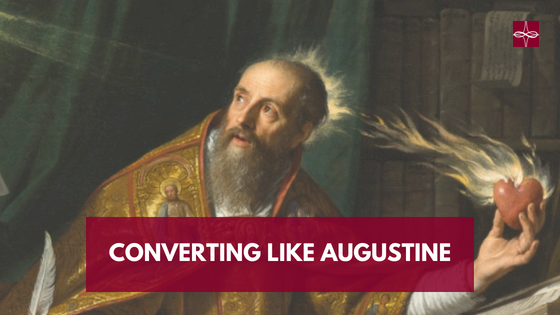
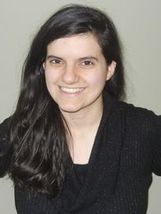

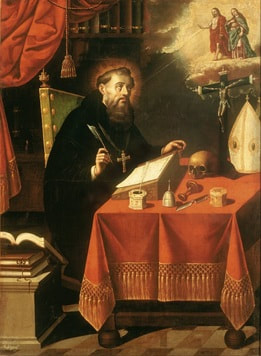

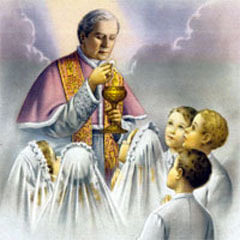
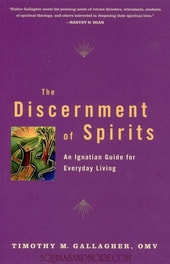
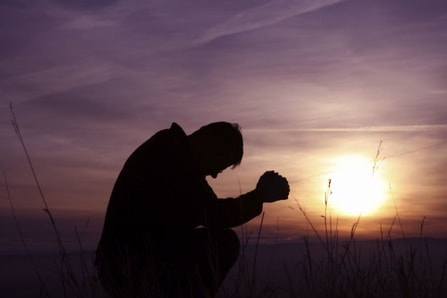


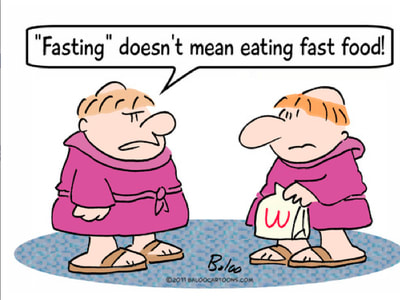
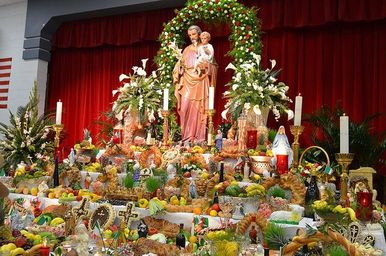
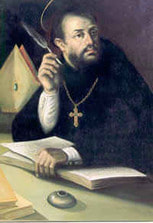


 RSS Feed
RSS Feed